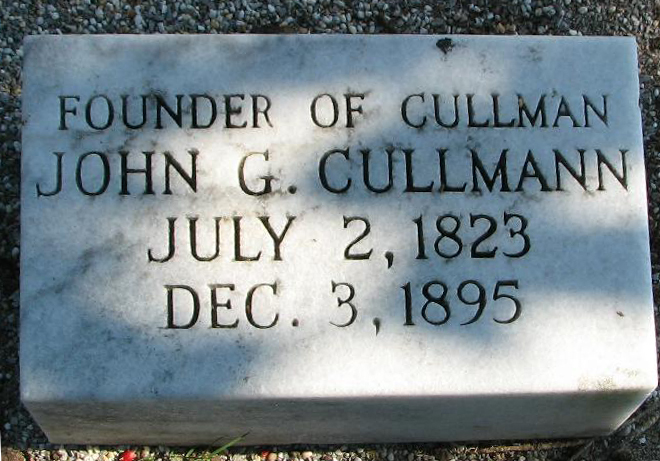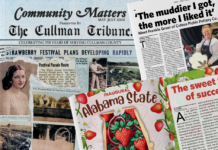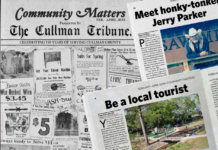CULLMAN – John Gottfried Cullmann was born on July 2, 1823 and died December 3, 1895. He is buried in the Cullman City Cemetery. Below is his eulogy, which was delivered by Mr. George Henderson Parker.
“Friends – We meet here today, in this city of the dead, with the blue sky over our heads and the bright sunlight all around us, in the fall season of the year, in which nature tells us by the blighted grass, and the falling, golden leaves, that she too is dead, or sleeping, to perform the last sad rite over the body of our departed friend, to pay to his memory that respect, and to show to his kindred, that sympathetic feeling, which man can only show to his fellow man, in times like this, when we are called upon to mourn the loss of one near and dear to us.
The departed, John Gottfried Cullmann, was born on the Rhine in Bavaria, July 2, 1823; he came to America in 1865 and to Alabama in 1871 and died on December 3, 1895. His first enterprise was in and near Florence, Alabama. He spent near two years here and at the sister city of Tuscumbia, starting the immigration of the Germans to that local city. In the fall of 1872, Mr. Cullmann came to where Cullman now stands, and decided to plant a colony here. At this time this locality was an unbroken woods; the ax had not touched the noble trees of the forest; the deer fed unmolested in the shady glades; and the wild flowers gave off their sweet perfume untouched and unnoticed. This was regarded as the poorest part of the state; and the project of Mr. Cullmann was looked upon by many as the working of a disordered brain, or a mere chimerical venture that would amount to nothing. But with that keen foresight, with which he was endowed, he persisted in his attempt, and today you have the County and City of Cullman as the result of his efforts. To him goes the honor of establishing the first successful colony in this state and of the few in the southern states. More lasting, more impressionable, than the work of hands in brass or stone, is the monument he has built for himself, and to which he has given his name, the City and County of Cullman. Never holding, never desiring an office, he was never happier than when doing something for the material advancement and progress of his beloved Town and County: and for which his purse was ever open, and his energies ever directed.
In all his family relations he was always tender, affectionate and true. As a friend and neighbor, there are many here today who will join me in saying that he was always kind, true and helpful. There are but few of the earlier colonists who have not received some assistance at his hand. Always looking upon the bright side of life, his was a happy disposition indeed.
In the fullness of age, with his life work accomplished, he quietly has gone to his rest; and his familiar form and kindly face will be no more among us. Our words can offer but poor consolation to his sorrowing kindred and friends. To each of these and to all, we would say: let us take a lesson from nature. As nature is now not really dead, but only sleeping for a time; and in the spring time of the year will awaken from the sleep on winter – and the grass, flowers, trees and everything around us and above us will bespeak ceaseless life and activity and the power and wisdom of the Great Ruler of the Universe, and nature will put on her most beautiful dress and the hills and valleys will be radiant with the beauty and fragrant with the perfume of flower and shrub – so let us believe that he is not dead, but only sleeping, and that in the Spring time of the great life immortal, he will awaken and be with his kindred and friends to part no more. Let us murmur not at the parting, ‘His will, not ours be done,’ but let our minds dwell upon the happy meeting on the other shore. He is not dead, but just gone on before. And while in the midst of life, let us not forget that.”
“The boast of heraldry, the pomp of power,
And all that beauty, all the wealth e’er gave
Await, alike the inevitable hour
The path of glory lead but to the grave.”





























